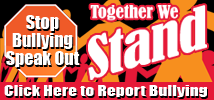Course Cards & Elective Descriptions
Course Descriptions
CTE
Semester Course
Exploration of Aerospace Technology (semester 2) (7th and 8th Gr)
Exploration of Aerospace Technology course give your child an opportunity to explore aerospace technology and its associated careers. In addition, the exploration of aerospace technology course will expand your child’s understanding of the role that aerospace technology plays in our contemporary society and the role it will play in our future. Students will be given the opportunity to solve technological problems using a variety of tools, materials, processes and systems while gaining an understanding of the effects of aerospace technology on their everyday lives. Instruction and learning activities are provided in a machine shop / classroom setting using hands-on experiences with the equipment, materials and technology appropriate to the course content and in accordance with current practices.
Exploration of Health Science Professions (7th and 8th Gr)
This is a semester long course that is a prerequisite for the Medical Skills class. Students will engage in the exploration of health related professions, including training levels, research contributions made in the field of medical science and the impact on the health care field, identify technology used for communication in healthcare professions and proper etiquette for its use, demonstrate use of medical terminology and abbreviations associated with the healthcare professions, analyze case studies or current events in the medical profession, and more.
Exploration of Robotics Technology (7th and 8th Gr)
Students will engage in opportunities that allow them to explore the area of robotics technology and its associated careers. Students will be given the opportunity to solve technological problems using a variety of tools, materials, processes and systems while gaining an understanding of the effects of robotics technology on our everyday lives.
Exploring Technology and Career Planning (semester 1) (7th and 8th Gr)
Exploring Technology course give your child an opportunity to explore technology and its associated careers. In addition, the exploring technology course will expand your child’s understanding of the role that technology plays in our contemporary society and the role it will play in our future. Students will be given the opportunity to solve technological problems using a variety of tools, materials, processes and systems while gaining an understanding of the effects of technology on their everyday lives. Instruction and learning activities are provided in a machine shop / classroom setting using hands-on experiences with the equipment, materials and technology appropriate to the course content and in accordance with current practices.
Intro to Arts A/V, Tech & Communications 1 (7th and 8th Gr)
Students will use Photoshop to engage in content that includes, but is not limited to, enhanced practical experiences in computer generated art and text, photo manipulation and composition, graphic design, graphic production, electronic design skills, preparation of electronic layouts and illustrations, and development of specialized skills in multimedia presentations. Students will engage in coherent, rigorous content, that is aligned with challenging academic standards and relevant technical knowledge and skills needed to prepare for further education and careers in the Arts, A/V Technology and Communication career cluster; provides technical skill proficiency, and includes competency-based applied learning that contributes to the academic knowledge, higher-order reasoning and problem-solving skills, work attitudes, general employability skills, technical skills, and occupation-specific skills, and knowledge of all aspects of the Arts, A/V Technology and Communication career cluster.
Computer Applications in Business 1 (semester 1) (7th and 8th Gr)
Students engage in hands-on learning experiences with regard to instruction in intermediate keyboarding, intermediate word processing, intermediate electronic presentation, intermediate computer hardware, intermediate Internet, introductory spreadsheet, and skills for business applications. Students will explore future academic/occupational goals and be provided information regarding careers in the Business Management and Administration career cluster. Instruction and learning activities are provided in a laboratory setting using hands-on experiences with the equipment, materials, and technology appropriate to the course content and in accordance with current practices. Industry Certification will be earned in Word Essentials and Multi-Media Essentials.
Computer Applications in Business 2 (semester 2) (prereq CAB 1) (7th and 8th Gr)
The purpose of this course is to assist students in making informed decisions regarding their future academic and occupational goals and to provide information regarding careers in the Business Management and Administration career cluster. The content includes but is not limited to instruction in advanced keyboarding, advanced word processing, advanced hardware, advanced Internet, intermediate spreadsheet, introductory digital design, and skills for business applications. These competencies provide the skills necessary to ensure increased productivity and efficient utilization of equipment. Instruction and learning activities are provided in a laboratory setting using hands-on experiences with the equipment, materials, and technology appropriate to the course content and in accordance with current practices. Industry Certification will be earned in Cyber Security, Spreadsheet Essentials (Excel), Communication Essentials, and Computing Essentials.
M/J Computer Science Discoveries 1 (semester 1) (6th– 8th Gr)
Computer Science Discoveries 1 introduces students to computer science as a vehicle for problem solving, communication, and creative computing. The course focuses on the visual programming/coding, game creation, CAD design and 3D printing and physical computing. This course encourages students to see where computer science exists around them and how they can engage with it as a tool for exploration and expression. Many young people with access to computers participate as consumers, rather than designers or creators. Creative computing emphasizes the knowledge, practices, and fundamental literacies that young people need to create the types of dynamic and interactive computational media that they enjoy in their daily lives. Engaging in the creation of computational artifacts prepares students for more than careers as computer scientists or programmers. It supports their development as computational thinkers – individuals who can draw on computational concepts, practices, and perspectives in all aspects of their lives, across disciplines and contexts. Students will gain knowledge to take the Coding In Minecraft Digital Tool Certification Exam at the end of the semester.
M/J Computer Science Discoveries 2 (semester 2) (7th and 8th Gr)
Computer Science Discoveries 2 introduces students to computer science as a vehicle for problem solving, communication, and creative computing. The course focuses on Computing Essentials, Cyber Security, Artificial Intelligence and physical computing. This course encourages students to see where computer science exists around them and how they can engage with it as a tool for exploration and expression. Many young people with access to computers participate as consumers, rather than designers or creators. Creative computing emphasizes the knowledge, practices, and fundamental literacies that young people need to create the types of dynamic and interactive computational media that they enjoy in their daily lives. Engaging in the creation of computational artifacts prepares students for more than careers as computer scientists or programmers. It supports their development as computational thinkers – individuals who can draw on computational concepts, practices, and perspectives in all aspects of their lives, across disciplines and contexts. Students will gain knowledge to take the ICT Essentials: Cyber Security Tools Certification by the end of the semester.
HS Courses
Digital Information Technology (7th and 8th Gr)
This course is designed to provide a basic overview of current business and information systems and trends, and to introduce students to fundamental skills required for today’s business and academic environments. Emphasis is placed on developing fundamental computer skills. The intention of this course is to prepare students to be successful both personally and professionally in an information-based society. Digital Information Technology includes the exploration and use of: databases, the internet, spreadsheets, presentation applications, management of personal information and email, word processing and document manipulation, HTML, web page design, and the integration of these programs using software that meets industry standards. After successful completion of this core course, students will have met Occupational Completion Point A, Information Technology Assistant – SOC Code 15-1151. In this course, students will be working toward MOS (Microsoft Office Suite) Industry Certifications. These will include MOS Word Expert, MOS Power Point Pro, MOS Excel Expert, and MOS Outlook. If all 4 tests are passed, the student will earn a 5th Certificate called the Microsoft Office Specialist Expert.
Medical Skills Services 1 (prereq exp of health) (7th and 8th Gr)
This is a yearlong class in which completion of the course will earn the student high school credit.
Students must maintain a “C “average or higher in the course through its duration in order to ensure the
student’s high school GPA (grade point average) is not impacted. Students will engage in opportunities that
allow them to apply knowledge and skills related to the Health Science career cluster taken in a previous
school year. The content includes, but is not limited to, practical generic skills in health occupations. The
content is coherent, rigorous, and aligned with challenging academic standards and relevant technical
knowledge and skills needed to prepare for further education and careers in the Health Science career cluster.
The Medical Skills course provides technical skill proficiency, and includes competency-based applied
learning that contributes to the academic knowledge, higher-order reasoning and problem-solving skills,
work attitudes, general employability skills, technical skills, and occupation-specific skills, and knowledge
of all aspects of the Health Science career cluster.
Spanish 1 (7th and 8th Gr)
Introduces students to the target language of Spanish and its culture. The student will develop communicative skills in all 4 modes of communication (listening, speaking, reading, and writing) and gain cross-cultural understanding. Emphasis is placed on proficient communication in the language. An introduction to reading and writing is also included as well as culture, connections, comparisons, and communities.
Spanish 2 (prereq Spanish 1) (7th and 8th Gr)
The purpose of this course is to develop skills in contextual settings in order to increase students’ comprehension in the target language. It will build upon foundational skills students have acquired in Spanish 1 in order to establish connections using details between oral and written language within different cultures and communities. Students will move from short, basic conversations to longer, more complex conversations within the target language by refining foundational skills and extending relationships to deepen their knowledge of the target language and culture.
Fine Arts
Semester Course
Exploration of 2-D Art (6th– 8th Gr)
This course is designed for students who express an interest in the fine arts. Students investigate a wide range of media and techniques, form both an historical and contemporary perspective, as they engage in the art-making process of creating two-dimensional works. These include drawing, painting, printmaking, and/or collage. Student artists reflect on their own artwork and that of others through critical analysis to achieve artistic goals related to craftsmanship, technique, and application of 21st century skills. Opportunities are provided for creative decision making in the context of the structural elements of art and the organizational principles of design. This course incorporates hands on activities an consumption of art materials.
Exploration of 3-D Art (6th– 8th Gr)
This course is typically designed for students who have studied Exploring Two-Dimensional Art. Students learn to translate their two-dimensional skills into three-dimensional forms through the exploration of natural, abstract, and synthetic sculptural forms using materials that may include, but are not limited to, clay, paper mâché, and mixed media for creative expression. These students develop perceptual, creative, technical, and problem-solving skills in a sculptural context as they design and produce works of art with personal expression. Students in M/J Exploring Three-Dimensional Art focus on the use of safety procedures for process, media, and techniques. This course incorporates hands-on activities and consumption of art materials. While M/J Exploring Two- Dimensional Art is not a prerequisite for M/J Exploring Three-Dimensional Art, it is highly recommended that students take two-dimensional art before moving to the three-dimensional art course.
Physical Education (6th– 8th Gr)
This course is to provide students with the knowledge, skills, and values they need to become healthy and physically active for a lifetime. This course addresses both the health and skill-related components of physical fitness which are critical for students’ success.
Year Long Course
3-D Studio Art (prereq 2D and 3D Art) (7th and 8th Gr)
This course is offered to students who have already had M/J Exploring Two-Dimensional Art and M/J Exploring Three-Dimensional Art. Studio Art combines both 2D and 3D projects creating more in-depth designs. The instructor of M/J Three-Dimensional Studio Arts 1 must approve students attempting to take the course by signing the student’s course card. Students begin an exploration of the structural elements of art used when creating 3-D forms. Additive and subtractive processes are used to manipulate and construct sculptural or ceramic forms in media that may include, but are not limited to clay, wood, plaster, found objects, and paper mâché, with consideration of the workability, durability, cost, and toxicity of the media used. Student artists examine the effects of attention to detail, size, position, overlapping, visual pattern, and texture, and these considerations will be reflected in the surface and structural qualities of completed art forms. Students in the 3-D art studio focus on use of safety procedures for process, media, and techniques. Student artists use an art criticism process to evaluate, explain, and measure artistic growth in personal or group works. This course incorporates hands-on activities and consumption of art materials.
Creative Writing (6th– 8th Gr)
The purpose of this course is to enable students to learn and use writing and language skills for creative expression in a variety of literary forms. Emphasis will be on development of a personal writing style.
The content should include, but not be limited to, the following:
- a study of a variety of short literary collections, including poetry, one-act plays, the short story, and memoir to determine and practice
- literary text craft and structure
- use of figurative, denotative, and connotative language
- appropriate voice and/or tone
- story structure, poetic forms, and creative pacing techniques
- reciprocal nature of content and form
- writing for varied purposes and in varied genres, including
- personal and dramatic narratives
- various poetic forms
- plays and multimedia productions
- multi-genre and creative nonfiction selections
- digital writing platforms
- effective listening, speaking, and viewing strategies with emphasis on the use of evidence to support or refute a claim in multimedia presentations, class discussions, and extended text discussions
- collaboration amongst peers, especially regarding peer reviews of multiple drafts
Guitar 1 (7th and 8th Gr)
Students with little or no experience develop basic guitar skills and knowledge, including simple and full-strum chords, strumming patterns, playing/singing simple melodies, foundational music theory, parts of the guitar, and ensemble skills. Beginning guitarists explore the careers and music of significant performers in pop/rock, jazz, blues, classical, country, bluegrass, and hard rock/metal genres. Public performances may serve as a culmination of specific instructional goals. Students may be required to attend and/or participate in rehearsals and performances outside the school day to support, extend, and assess learning in the classroom. This course may also require students to obtain a musical instrument (e.g., borrow, rent, purchase) from an outside source.
Guitar 2 (8th Gr)
Students with previous experience expand on basic guitar skills and knowledge, adding simple and full-strum chords, barre and power chords, and strumming patterns; adding more complex lead sheets and 1st-position chromatics; and building ensemble skills. Guitarists transfer between tablature and standard notation, study the work of significant musicians, and explore electric guitars, basses, and amplifiers. Public performances may serve as a culmination of specific instructional goals. Students may be required to attend and/or participate in rehearsals and performances outside the school day to support, extend, and assess learning in the classroom. This course may also require students to obtain a musical instrument (e.g., borrow, rent, purchase) from an outside source.
Band 1 (6th– 8th Gr)
Students with little or no instrumental experience develop foundational instrumental technique, foundational music literacy, and aesthetic musical awareness through rehearsal, performance, and study of high-quality band literature. Instrumentalists work on the fundamentals of music notation, sound production, instrument care and maintenance, and personal and group rehearsal strategies. Public performances may serve as a culmination of specific instructional goals. Students may be required to attend and/or participate in rehearsals and performances outside the school day to support, extend, and assess learning in the classroom. This course may also require students to obtain a musical instrument (e.g., borrow, rent, purchase) from an outside source.
Band 2 (7th– 8th Gr)
Students with previous band experience build on instrumental technique, music literacy, and aesthetic response through rehearsal, performance, and study of a variety of high-quality band literature. Instrumentalists expand their knowledge of music notation, music theory, sound production, and personal and group rehearsal strategies. Public performances may serve as a culmination of specific instructional goals. Students may be required to attend and/or participate in rehearsals and performances outside the school day to support, extend, and assess learning in the classroom. This course may also require students to obtain a musical instrument (e.g., borrow, rent, purchase) from an outside source.
Band 3 (8th Gr)
Students with previous band experience expand on their instrumental technique, music literacy, and aesthetic response through rehearsal, performance, and study of a variety of intermediate-level, high-quality band literature. Instrumentalists extend their knowledge of music notation and theory, sound production, and personal and group rehearsal strategies. Public performances may serve as a culmination of specific instructional goals. Students may be required to attend and/or participate in rehearsals and performances outside the school day to support, extend, and assess learning in the classroom. This course may also require students to obtain a musical instrument (e.g., borrow, rent, purchase) from an outside source.
Band 4 (8th Gr)
Students with considerable band experience strengthen their instrumental technique, music literacy, and aesthetic response through rehearsal, performance, and study of a variety of advanced, high-quality band literature. Instrumentalists refine their knowledge of music notation and theory, sound production, and personal and group rehearsal strategies. Public performances may serve as a culmination of specific instructional goals. Students may be required to attend and/or participate in rehearsals and performances outside the school day to support, extend, and assess learning in the classroom. This course may also require students to obtain a musical instrument (e.g., borrow, rent, purchase) from an outside source.
Chorus 1 (6th– 8th Gr)
Students with little or no choral experience develop beginning vocal technique and skills, critical and creative thinking skills, and an appreciation of music from around the world and through time. Public performances may serve as a culmination of specific instructional goals. Students may be required to attend and/or participate in rehearsals and performances outside the school day to support, extend, and assess learning in the classroom.
Chorus 2 (7th– 8th Gr)
Students build on previous choral experience to expand vocal, technical, musical, and ensemble skills through rehearsal, performance, and study of high-quality choral literature. Singers focus on increasing knowledge of music theory, music literacy, and aesthetic response. Public performances may serve as a culmination of specific instructional goals. Students may be required to attend and/or participate in rehearsals and performances outside the school day to support, extend, and assess learning in the classroom.
Chorus 3 (8th Gr)
Students with previous choral experience build intermediate-level knowledge of vocal technique, musical literacy, ensemble skills, and related musical knowledge through rehearsal, performance, and study of a variety of high-quality 2-, 3-, and 4-part choral literature. Public performances may serve as a culmination of specific instructional goals. Students may be required to attend and/or participate in rehearsals and performances outside the school day to support, extend, and assess learning in the classroom.
Theatre 1 (6th– 8th Gr)
Students learn the basics of building a character through such activities as pantomime, improvisation, and effective speaking using articulation, projection, and breathing. Students also learn the importance of technical theatre and explore the use of such elements as costumes, props, and scenery. Students practice writing for the theatre and explore various theatre roles and functions.
Theatre 2 (7th– 8th Gr)
Students with previous theatre experience and instruction continue to study acting, design, and dramatic literature to increase the enjoyment and understanding of what is required to prepare plays for the public. Students explore theatre history, study the great American playwrights, examine the cultural and historical contributions to theatre, and begin to use the information to inform their theatre knowledge and skills. Students begin to use the basic elements of theatre design through practical application and projects.
Musical Theatre 1 (7th– 8th Gr)
Student’s coursework focuses on, but is not limited to, acting, vocal performance, dance/movement, and staging, which transfer readily to musical theatre literature. Students will survey the current trends in musical theatre by studying representative literature. Students will explore the unique staging and technical demands of musicals in contrast to non-musical plays.
Health (6th Gr)
The purpose of this course is to provide students with the opportunity to gain the knowledge and skills necessary to become health literate and practice responsible behaviors to promote healthy lifestyle and healthy living. This comprehensive course focuses on the health issues core to the optimum development of adolescents. The content should include, but is not limited to:
- Core Concepts (dimensions of health, environmental health, illnesses and healthy behaviors)
- Accessing Information (family and friend influences, disease prevention, reproductive health, medical resources, school and community health)
- Internal and External Influences (available resources, seeking help, technology, products and services)
- Interpersonal Communication (healthy alternatives, conflict resolution, verbal and non-verbal, active listening and refusal skills)
- Decision Making (individual and group decisions, and positive/negative healthy options)
- Goal Setting (short and long term health strategies, personal health and small groups)
- Self Management (personal health practices and internet safety)
- Advocacy (positive promotion and accurate information sharing)
Intensive Reading (6th– 8th Gr)
The purpose of this course is to provide instruction that enables students to accelerate the development of reading and writing skills and to strengthen those skills so they are able to successfully read and write middle grade level text independently. Instruction emphasizes reading comprehension, writing fluency, and vocabulary study through the use of a variety of literary and informational texts encompassing a broad range of text structures, genres, and levels of complexity. Scaffolding is provided as necessary as students engage in reading and writing increasingly complex text and is removed as the reading and writing abilities of the students improve over time. Students who take this class have difficulty passing the state FAST testing with a Level 3 score.
Intensive Math (6th– 8th Gr)
The purpose of this course is to provide basic fundamental skills/instruction that were taught in previous years, but the student may still be struggling with in order to be more successful with grade level standards at an independent level. This course works to enable students to accelerate the development of math computation and math related skills and strengthen those skills that are weak so they are able to be more successful in middle grade level math independently. Students who take this class have difficulty passing the state FAST testing with a Level 3 score.




